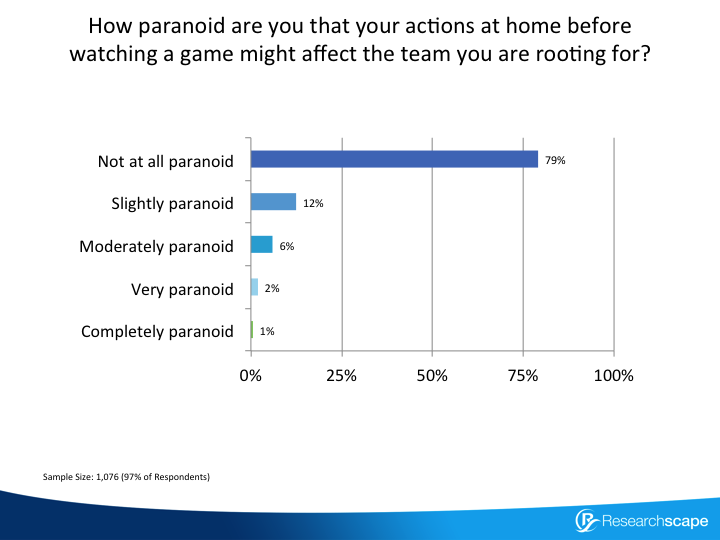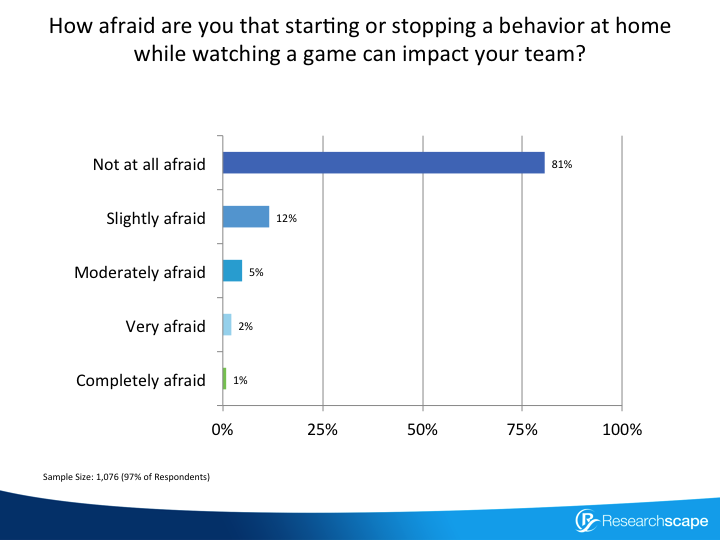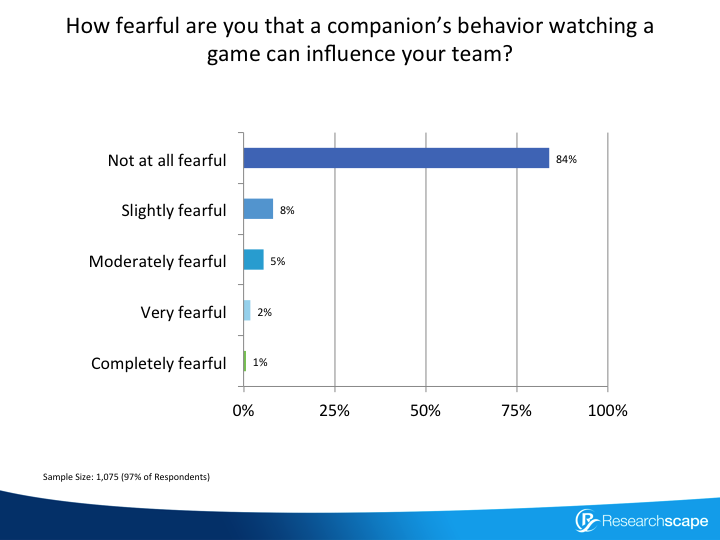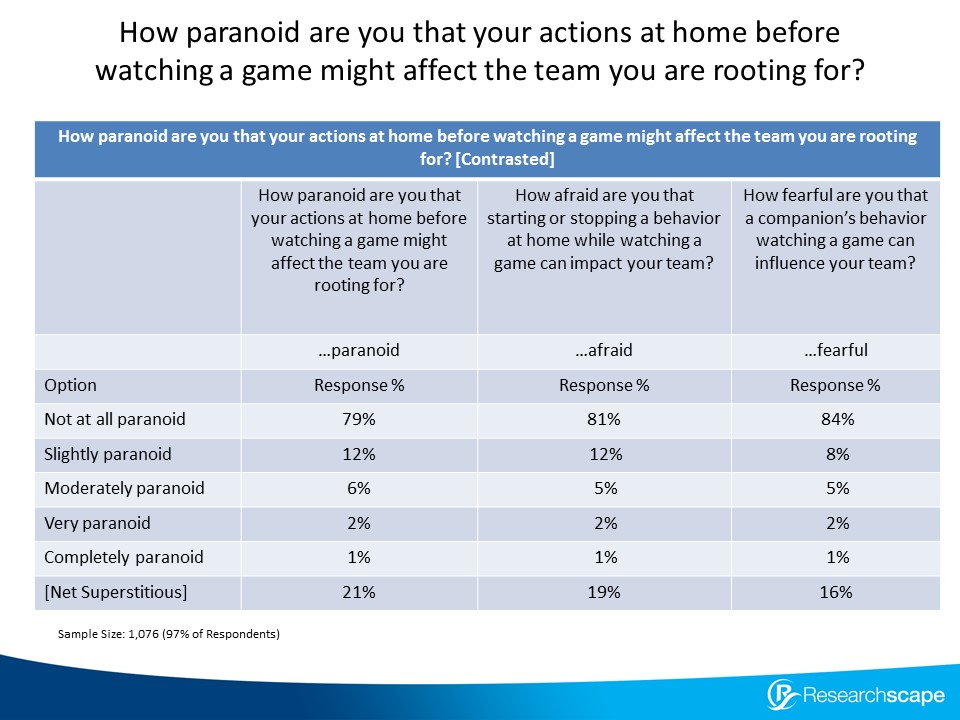We asked every respondent to rate their level of fear about how their actions at home might affect the team they are rooting for: while 21% of respondents are at least slightly paranoid, almost no respondents (3%) are very or completely paranoid.
In qualitative research about superstitions, fans often talked about “stopping”, “starting”, or “continuing” activities. As a result, we asked respondents about being afraid that changing their actions might affect their team: 19% were at least slightly afraid. Again, however, almost no respondents (3%) are very or completely afraid of affecting their team.
In qualitative research, respondents had complained about the presence or absence or activities or non-activities of companions. Only 16% of respondents are fearful about companion behavior, and again almost no respondents (3%) confessed to being very or completely fearful.
Respondents assigned greater agency to their own actions than those of their companions, with 21% of respondents being at least slightly paranoid about their actions at home vs. 16% being fearful about a companion’s behavior affecting the team they are rooting for.
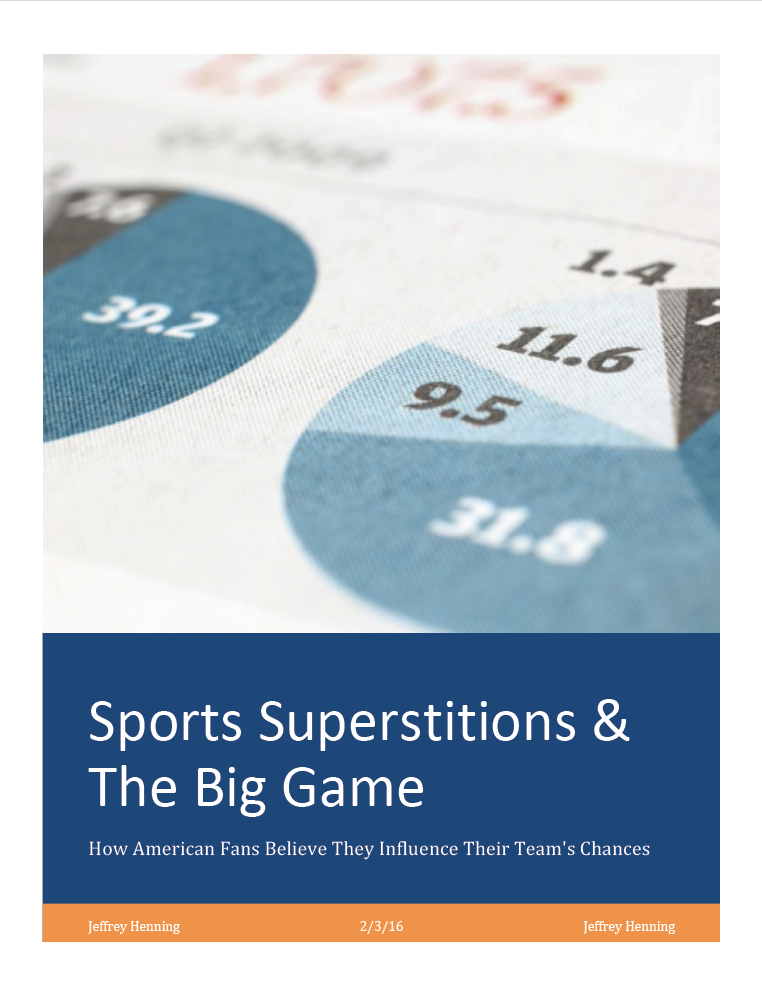 This is an excerpt from the free Researchscape white paper, “Sports Superstitions & The Big Game”. Download your own copy now:
This is an excerpt from the free Researchscape white paper, “Sports Superstitions & The Big Game”. Download your own copy now:
